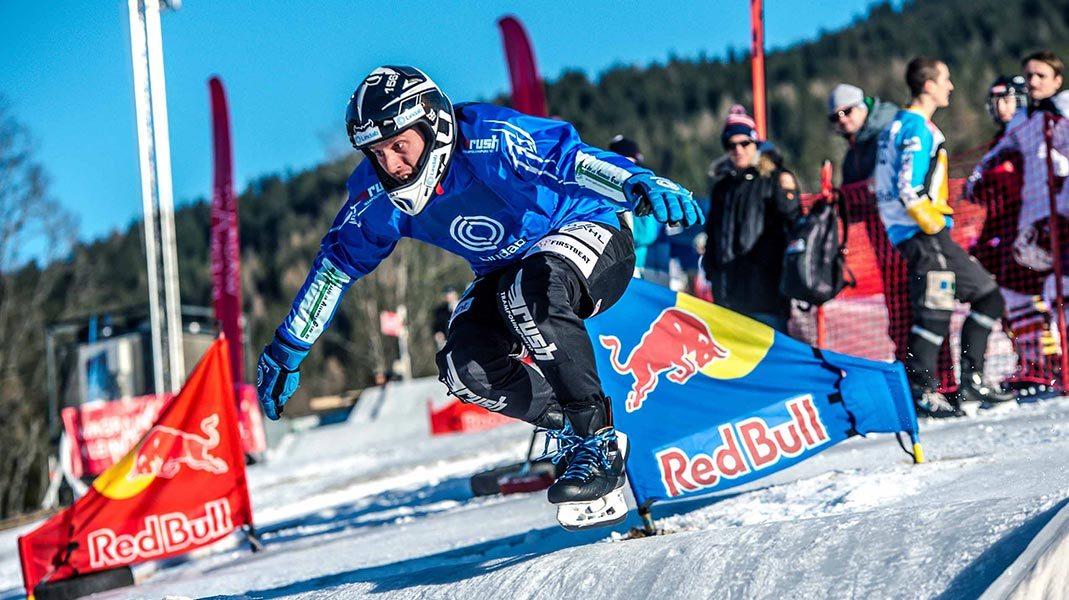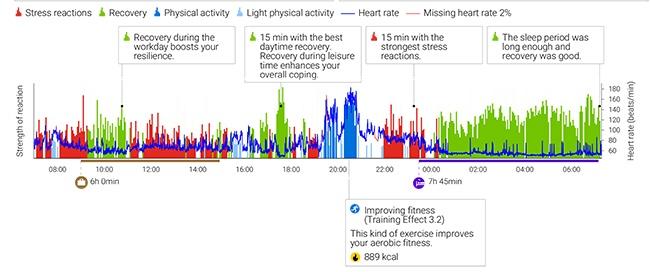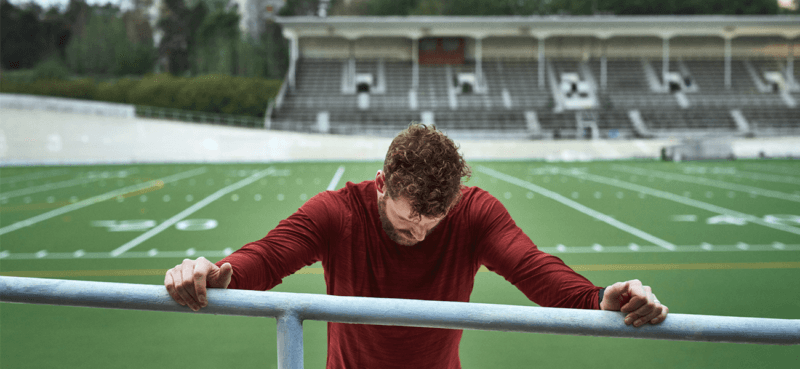
The results of Firstbeat’s Lifestyle Assessment helped ice cross downhill rider Antti Tolvanen investigate the relationship between personal fitness, training, recovery and peak performance.
Imagine: You have your skates on, and you’re standing on the top of a long, icy downhill track full of curves and jumps. Feel that tickle in your stomach yet? Well, there are people who live for that feeling of rush and excitement. Meet Antti Tolvanen, a top international ice cross downhill racer. It’s only been a little over three years since he was first introduced to the speedy sport, but in that time, he has been able to skate himself onto the shortlist of the world’s best riders.
So what motivated Tolvanen to try the Firstbeat Lifestyle Assessment last December?
“I train hard, so I wanted to see the impact it has on my body, in terms of performance and recovery,” he explains. “The measurement period lasted three days and on two of those days my workouts were really intense, which meant I couldn’t make an effort to recover properly. That’s why I was so surprised to see from the results that my recovery levels were actually good, both during the day and while sleeping. So now I know that I can work out even harder and my body will be okay with it.”

Despite the intense workout (TE 3.2), Tolvanen was able to recover well during the night.
“Your physical fitness and conditioning levels not only impact your ability to perform, but also your ability to recover from hard training,” explains Firstbeat Specialist Jaakko Kotisaari. “Seeing the details of this dynamic relationship helps athletes uncover the path towards balance for them personally, based on their individual situation, and we can even account for stress from non-training related activities like travel, for example, to ensure the picture is complete.”
It’s been a hectic season for Tolvanen. Competing for the world championship in the Red Bull Crashed Ice series has taken him to Austria and France and even back to his hometown Jyväskylä. Compared to other races, getting ready for Jyväskylä’s competition was an easy process.
”Being in France was heavy-duty, since the morning practices started pretty early, and I didn’t get enough sleep. In addition, the accommodation also caused some extra trouble compared to last week’s race in Jyväskylä, where I could stay at my parent’s in a comfy and familiar environment. In the comfort of home, the mental preparation process is easier, as well,” reflects Tolvanen.
The process of preparation, both mental and physical, starts from the very first practices of the season and continues all the way to the starting gate. Thorough stretching sessions and listening to music are rituals Tolvanen follows at the scene of the race. ”I try to be in a good alert, goal-oriented state of mind prior to competing. Waiting at the starting line for the gates to open requires razor-sharp readiness,” he says.
The waiting continues during the race, when competitors are waiting for their next start. But does Tolvanen just hang around between starts doing nothing? “To keep my mind and body warm and at top capacity, I normally do step-ups and squats,” he reveals.
Tolvanen sure sounds like he knows what he’s doing and seems ready for the next race which is right around the corner, as the Red Bull Crashed Ice series moves to Rautalampi this weekend. Tolvanen is heading to the race more confident than ever:
“Thanks to the Firstbeat Lifestyle Assessment, I got a behind the scenes look at what was really happening inside my body, as I prepared to compete. Going forward, this experience will allow me to make better, more informed decisions based on the real factors that influence the quality of my rest and my body’s ability to recover.” Tolvanen concludes.
Header photo: Mark Roe
If you liked this article, you should subscribe to our mailing list
You might also be interested in

Red Bull Crashed Ice Junior World Winner Mirko Lahti Aims to Renew His Championship
The season of the world’s fastest sport on skates went as quickly as the riders on the track, but the speedy competitors have already got their hands full preparing for the start of next season. We chatted with Mirko Lahti, the recently crowned 20-year-old Junior World Championship.

3 Types of Psychological Stress Affecting Athletes In-season
What exactly are these stressors and how can coaches and athletes identify them in order to adjust and, ultimately, limit the negative impact they can have?
